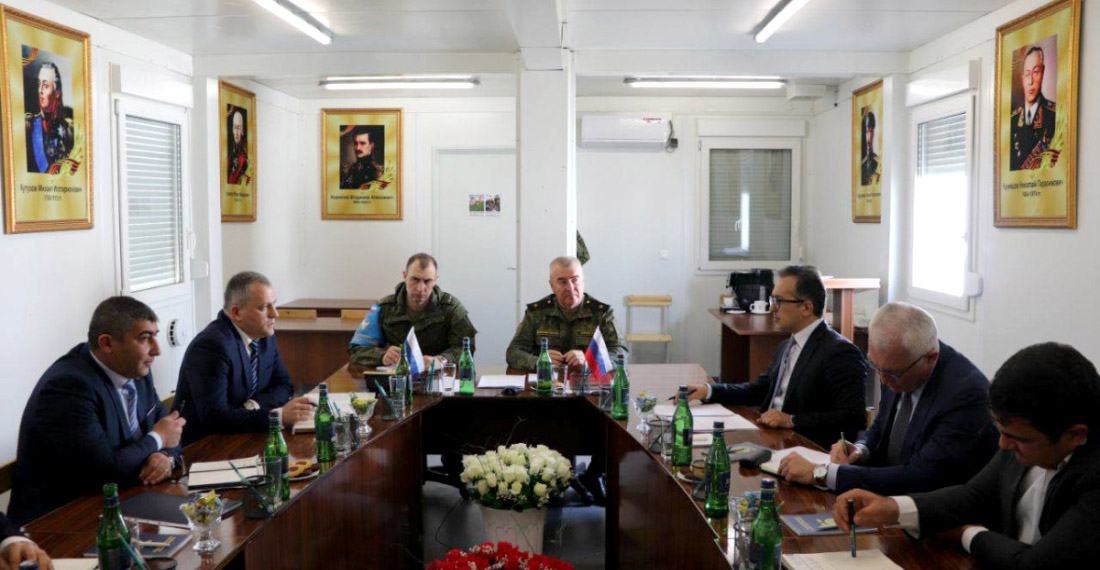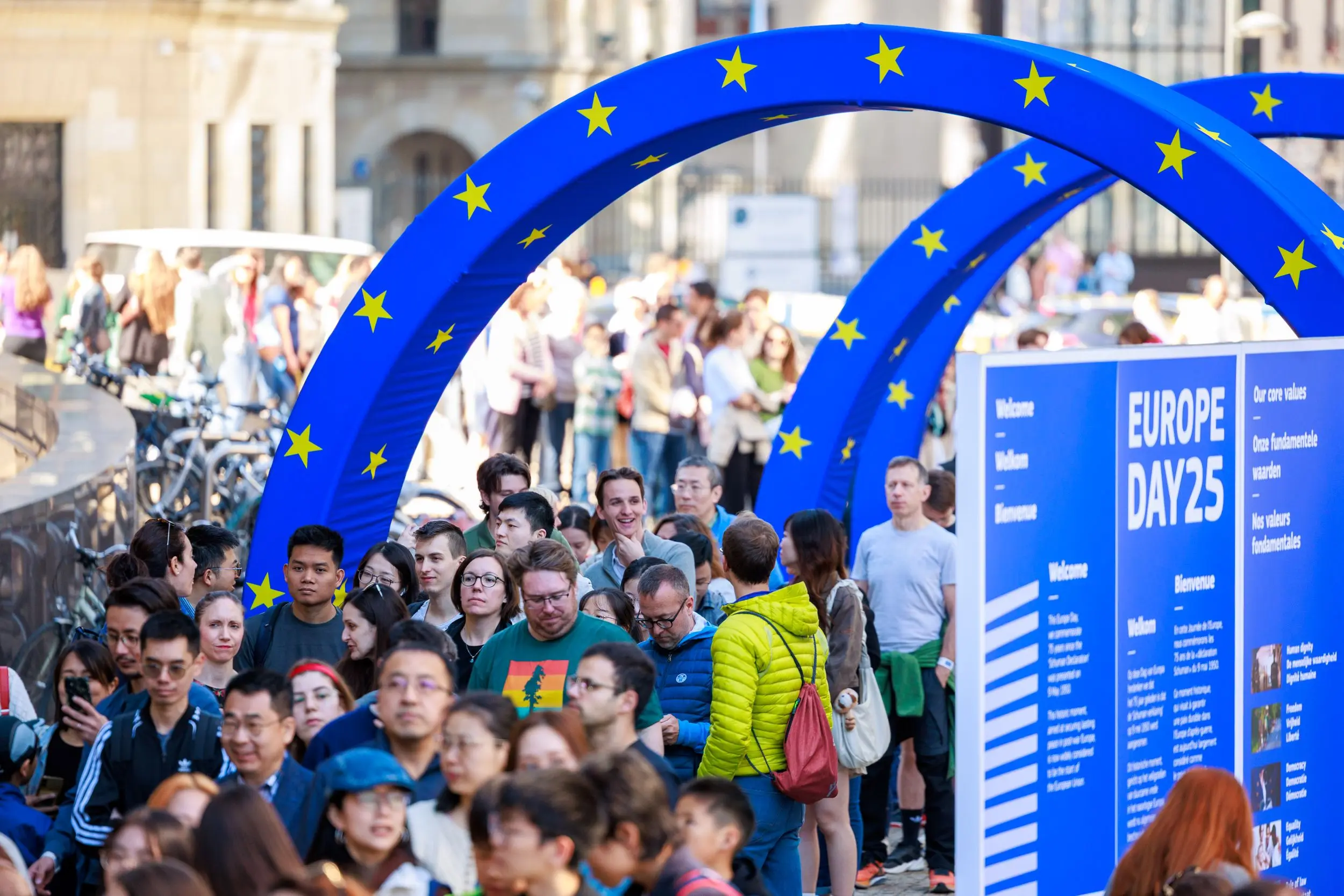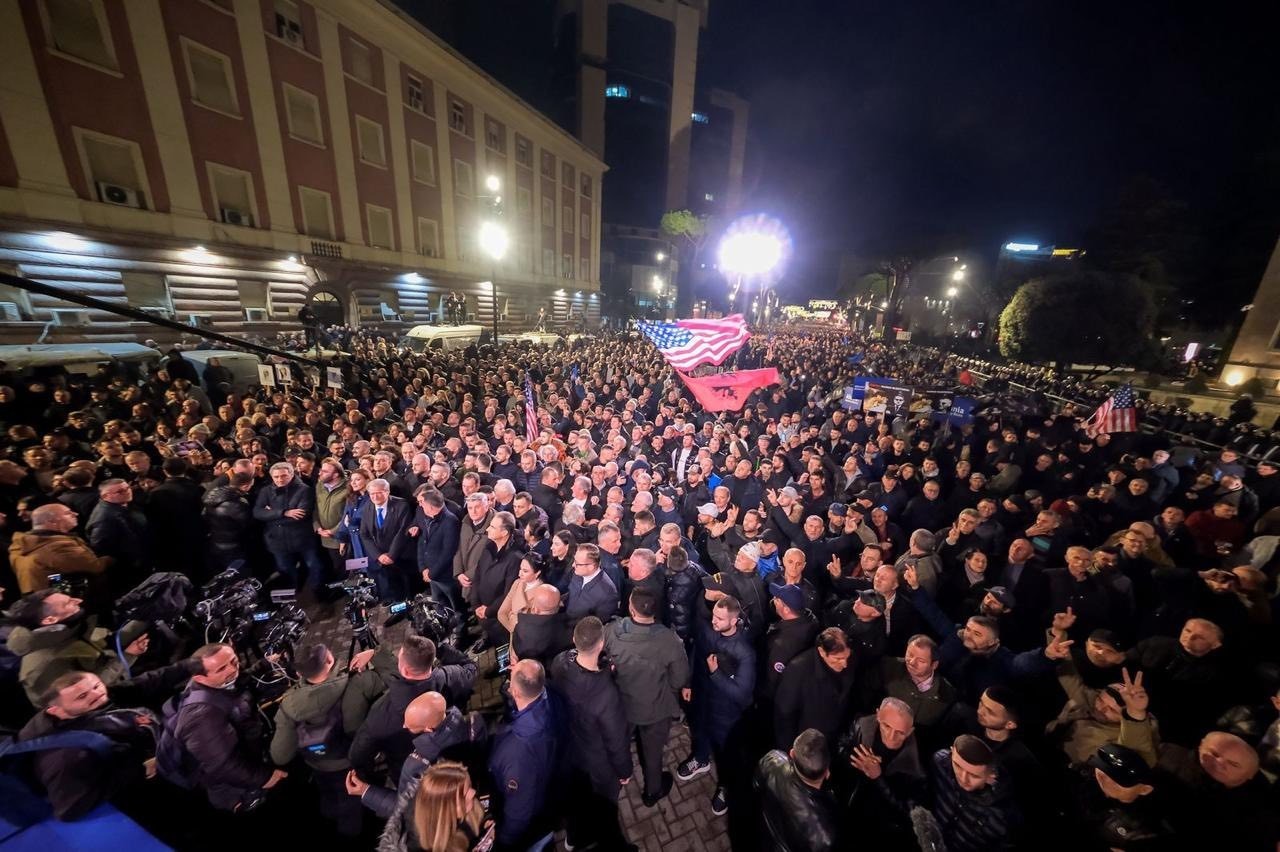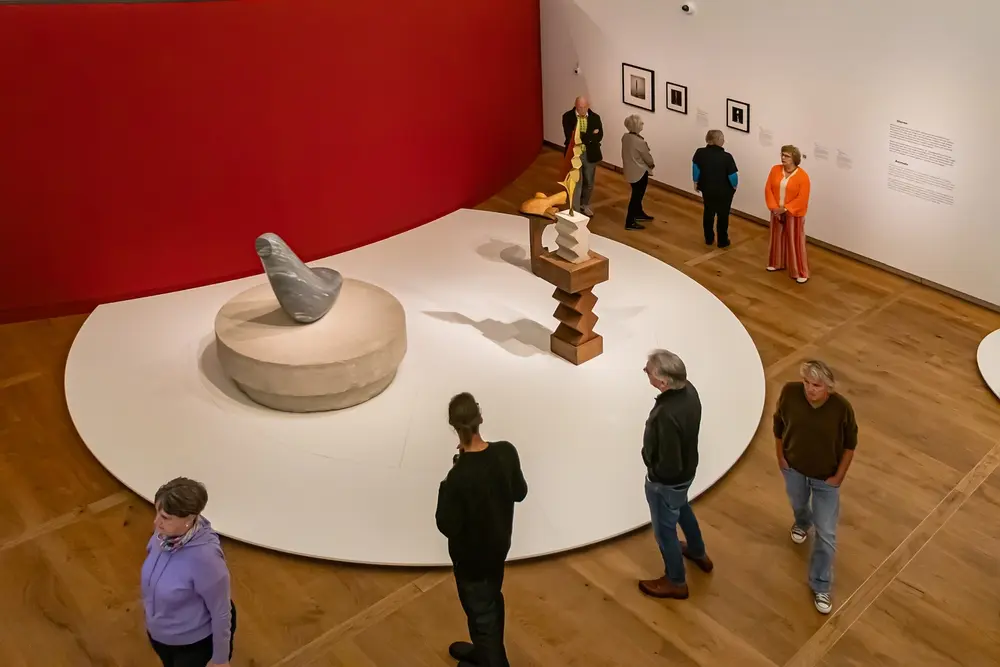Azerbaijan and Karabakh Armenians talks at risk after gunfight
Recent gunfight casts doubt on prospects for talks between Azerbaijan and Karabakh Armenians

Azerbaijan-and-Karabakh-Armenians-talks-at-risk-after-gunfight
The meeting of the two delegations
In a rare public display, officials from Azerbaijan and the mainly ethnic Armenian-populated and breakaway region of Nagorno Karabakh met on 1 March. The meeting, overseen by Major General Andrey Volkov, commander of the Russian peacekeeping contingent assigned to enforce the November 2020 ceasefire statement, signalled the possibility of a breakthrough in negotiations.
Moreover, for the first time, Baku had designated a special representative, MP Ramin Mammadov, to talk with the representatives of what it had hitherto considered the illegitimate and separatist de facto authorities objecting to its rule on what the international community considers to be sovereign Azerbaijan territory. Opposite him was Karabakh’s de facto National Security Secretary, Samuel Shamranyan.
"This was the first time when a political representative met with the Karabakh Armenians”, says Ahmad Alili, Director of the Baku-based Caucasus Policy Analysis Centre (CPAC). “Until this moment we only had times when Karabakh Armenians and [lower-level and specialist] Azerbaijanis held meetings on various topics such as water management. This time it was political representatives”.
Accompanying Mammadov were members of a special monitoring group tasked with probing the exploitation of Azerbaijan’s natural resources. This alleged exploitation is also believed to be the reason behind the effective blockade of the strategic Lachin Corridor, which has been in effect for more than 87 days due to the actions of self-proclaimed environmental activists supported by the government.
At present, the transportation of humanitarian and medical aid along the route has been confined to vehicles belonging to the Russian peacekeeping contingent and the International Committee of the Red Cross (ICRC). During the recent meeting between the Azerbaijani and ethnic Armenian officials, the issue of the Lachin Corridor dominated.
Other issues reportedly discussed at the 1 March meeting concerned the repair and restoration of the electricity supply from Armenia to Karabakh and the uninterrupted supply of natural gas that also passes through Azerbaijani territory. However, some media reported, Mammadov additionally raised the issue of re-integrating the ethnic Armenian population of Karabakh into Azerbaijan proper.
The de facto Karabakh authorities immediately renounced such claims saying that its delegation refused to discuss this matter with Mammadov and still demands independence from Azerbaijan. Furthermore, on 7 March, the de facto Karabakh leadership even claimed that Baku threatened “more drastic steps” against it unless such aspirations were dropped.
“I want to state again that it is not only a decision of the Security Council, but the overwhelming majority of our people accepts that we will not deviate from our right to independence and self-determination”, the President of the unrecognised and besieged Karabakh, Arayik Harutyunyan, said. “And that means that in the near future, we will have various developments and situations that we will have to face”.
Neither the international community nor the Republic of Armenia supports such demands, with Yerevan now focused only on guarantees for the rights and security of the ethnic Armenian population. Thus, Alili believes “Azerbaijan wants to cooperate with Karabakh and Baku wants to show them that there is the possibility for coexistence”.
But if there were hopes that some type of visible discussion mechanism between the sides was finally being put in place, they were dashed just days later. On 5 March, two Azerbaijani soldiers and three Armenian policemen were killed in a gunfight that broke out in the breakaway region. Each side blames the other for what was the most serious incidence of violence in Karabakh this year.
Azerbaijan claims that the Karabakh policemen were transporting weapons while the Armenian side accuses Baku of orchestrating the incident, even going as far as calling it “terrorism”. And in a 7 March statement, the Azerbaijani Ministry of Defence threatened to take “decisive and necessary measures by using all possibilities in order to disarm and neutralise illegal gunmen”.
In such a situation, many are now skeptical about the prospect of talks between Baku and Stepanakert, the effective capital of the breakaway region.
“This recent attack definitely affected [the 1 March talks]”, Benyamin Poghosyan, Director of the Yerevan-based Centre for Political and Economic Strategic Studies (CPES), told Osservatorio Balcani Caucaso Transeuropa. “Not only the attack but also Azerbaijan’s ultimatum to disband the NK defence force and establish a checkpoint on Lachin or otherwise [face] new attacks”.
“I believe this proves that currently we have no basis for any meaningful negotiations between Azerbaijan and NK so I don’t see how these meetings can continue”, he concludes.
Azerbaijan and Karabakh Armenians talks at risk after gunfight
Recent gunfight casts doubt on prospects for talks between Azerbaijan and Karabakh Armenians

Azerbaijan-and-Karabakh-Armenians-talks-at-risk-after-gunfight
The meeting of the two delegations
In a rare public display, officials from Azerbaijan and the mainly ethnic Armenian-populated and breakaway region of Nagorno Karabakh met on 1 March. The meeting, overseen by Major General Andrey Volkov, commander of the Russian peacekeeping contingent assigned to enforce the November 2020 ceasefire statement, signalled the possibility of a breakthrough in negotiations.
Moreover, for the first time, Baku had designated a special representative, MP Ramin Mammadov, to talk with the representatives of what it had hitherto considered the illegitimate and separatist de facto authorities objecting to its rule on what the international community considers to be sovereign Azerbaijan territory. Opposite him was Karabakh’s de facto National Security Secretary, Samuel Shamranyan.
"This was the first time when a political representative met with the Karabakh Armenians”, says Ahmad Alili, Director of the Baku-based Caucasus Policy Analysis Centre (CPAC). “Until this moment we only had times when Karabakh Armenians and [lower-level and specialist] Azerbaijanis held meetings on various topics such as water management. This time it was political representatives”.
Accompanying Mammadov were members of a special monitoring group tasked with probing the exploitation of Azerbaijan’s natural resources. This alleged exploitation is also believed to be the reason behind the effective blockade of the strategic Lachin Corridor, which has been in effect for more than 87 days due to the actions of self-proclaimed environmental activists supported by the government.
At present, the transportation of humanitarian and medical aid along the route has been confined to vehicles belonging to the Russian peacekeeping contingent and the International Committee of the Red Cross (ICRC). During the recent meeting between the Azerbaijani and ethnic Armenian officials, the issue of the Lachin Corridor dominated.
Other issues reportedly discussed at the 1 March meeting concerned the repair and restoration of the electricity supply from Armenia to Karabakh and the uninterrupted supply of natural gas that also passes through Azerbaijani territory. However, some media reported, Mammadov additionally raised the issue of re-integrating the ethnic Armenian population of Karabakh into Azerbaijan proper.
The de facto Karabakh authorities immediately renounced such claims saying that its delegation refused to discuss this matter with Mammadov and still demands independence from Azerbaijan. Furthermore, on 7 March, the de facto Karabakh leadership even claimed that Baku threatened “more drastic steps” against it unless such aspirations were dropped.
“I want to state again that it is not only a decision of the Security Council, but the overwhelming majority of our people accepts that we will not deviate from our right to independence and self-determination”, the President of the unrecognised and besieged Karabakh, Arayik Harutyunyan, said. “And that means that in the near future, we will have various developments and situations that we will have to face”.
Neither the international community nor the Republic of Armenia supports such demands, with Yerevan now focused only on guarantees for the rights and security of the ethnic Armenian population. Thus, Alili believes “Azerbaijan wants to cooperate with Karabakh and Baku wants to show them that there is the possibility for coexistence”.
But if there were hopes that some type of visible discussion mechanism between the sides was finally being put in place, they were dashed just days later. On 5 March, two Azerbaijani soldiers and three Armenian policemen were killed in a gunfight that broke out in the breakaway region. Each side blames the other for what was the most serious incidence of violence in Karabakh this year.
Azerbaijan claims that the Karabakh policemen were transporting weapons while the Armenian side accuses Baku of orchestrating the incident, even going as far as calling it “terrorism”. And in a 7 March statement, the Azerbaijani Ministry of Defence threatened to take “decisive and necessary measures by using all possibilities in order to disarm and neutralise illegal gunmen”.
In such a situation, many are now skeptical about the prospect of talks between Baku and Stepanakert, the effective capital of the breakaway region.
“This recent attack definitely affected [the 1 March talks]”, Benyamin Poghosyan, Director of the Yerevan-based Centre for Political and Economic Strategic Studies (CPES), told Osservatorio Balcani Caucaso Transeuropa. “Not only the attack but also Azerbaijan’s ultimatum to disband the NK defence force and establish a checkpoint on Lachin or otherwise [face] new attacks”.
“I believe this proves that currently we have no basis for any meaningful negotiations between Azerbaijan and NK so I don’t see how these meetings can continue”, he concludes.









